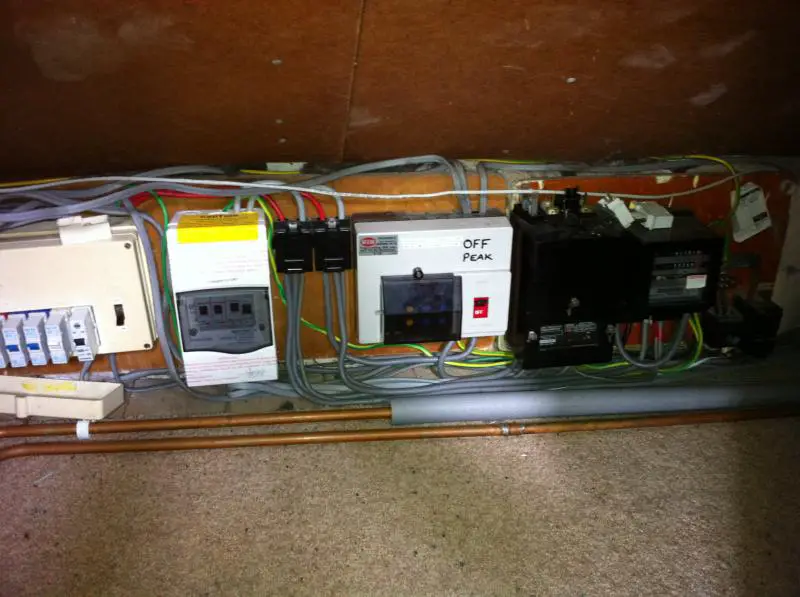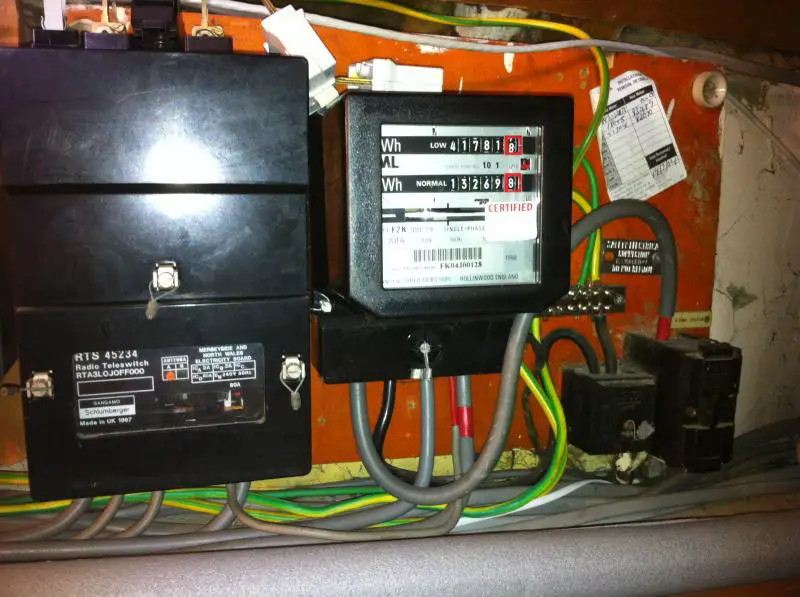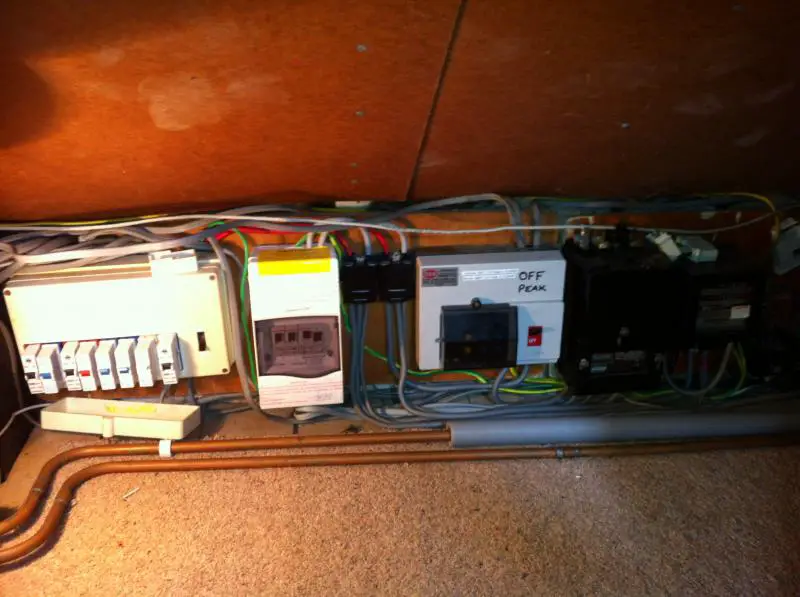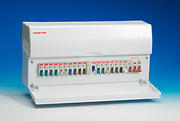Hi guys
Looking after a bit of advice before I get an electrician (or two) round for some quotes. Just to confirm, I have no intention of doing this myself...
Current setup:
- Original Wylex board at some stage has had MCBs fitted. This covers the majority of the house.
- A new consumer unit was installed when a conservatory was added. Just has '2' trip switches on it.
- We have off peak electric for night storage heaters and an unvented HW tank. This is on its own timer to heat up overnight. The whole house switches to offpeak using a teleswitch and then the night storage heaters automatically come. We want to stick with off peak. This still have old school fuses on.
So.. what should I be asking for to 'upgrade'?
One new board that has all the above in? Is this possible?
Would you remove the newer board for the conservatory and just add this to the new board?
Does the off peak board for the night storage heaters need its own board or can they be wired in as part of a bigger one and still be switched using the tele switch?
Photos below.
thanks in advance
Looking after a bit of advice before I get an electrician (or two) round for some quotes. Just to confirm, I have no intention of doing this myself...
Current setup:
- Original Wylex board at some stage has had MCBs fitted. This covers the majority of the house.
- A new consumer unit was installed when a conservatory was added. Just has '2' trip switches on it.
- We have off peak electric for night storage heaters and an unvented HW tank. This is on its own timer to heat up overnight. The whole house switches to offpeak using a teleswitch and then the night storage heaters automatically come. We want to stick with off peak. This still have old school fuses on.
So.. what should I be asking for to 'upgrade'?
One new board that has all the above in? Is this possible?
Would you remove the newer board for the conservatory and just add this to the new board?
Does the off peak board for the night storage heaters need its own board or can they be wired in as part of a bigger one and still be switched using the tele switch?
Photos below.
thanks in advance





